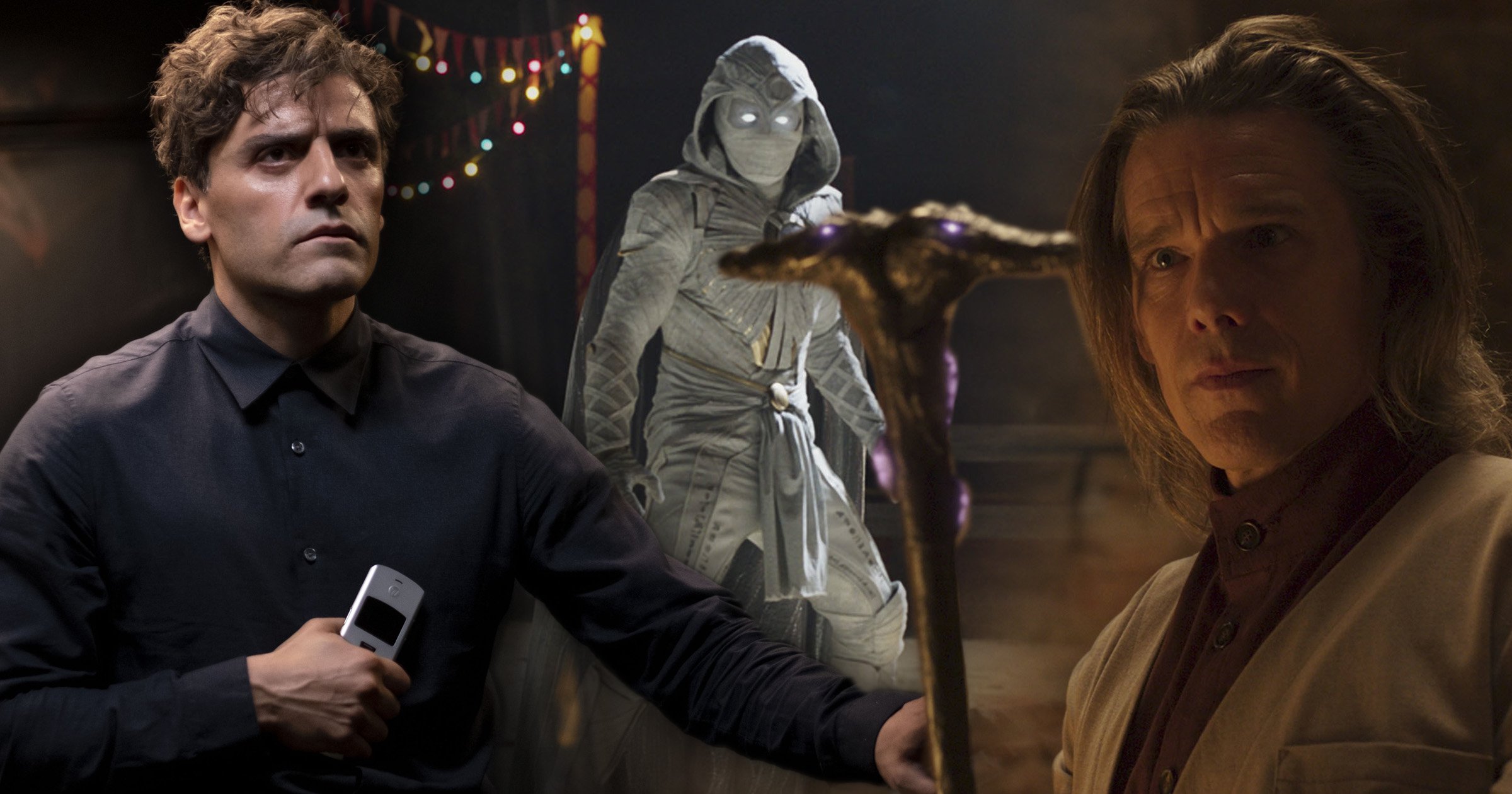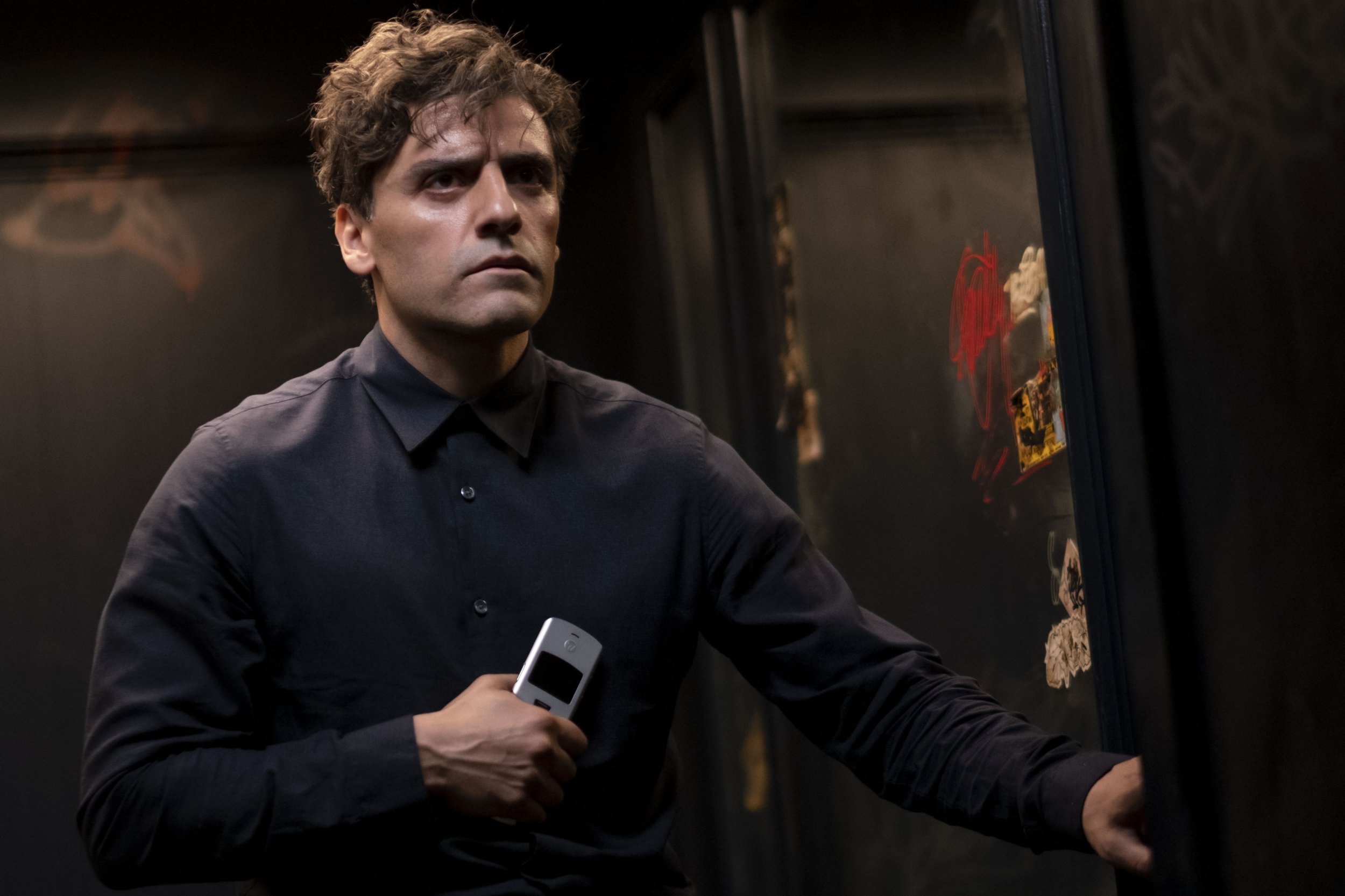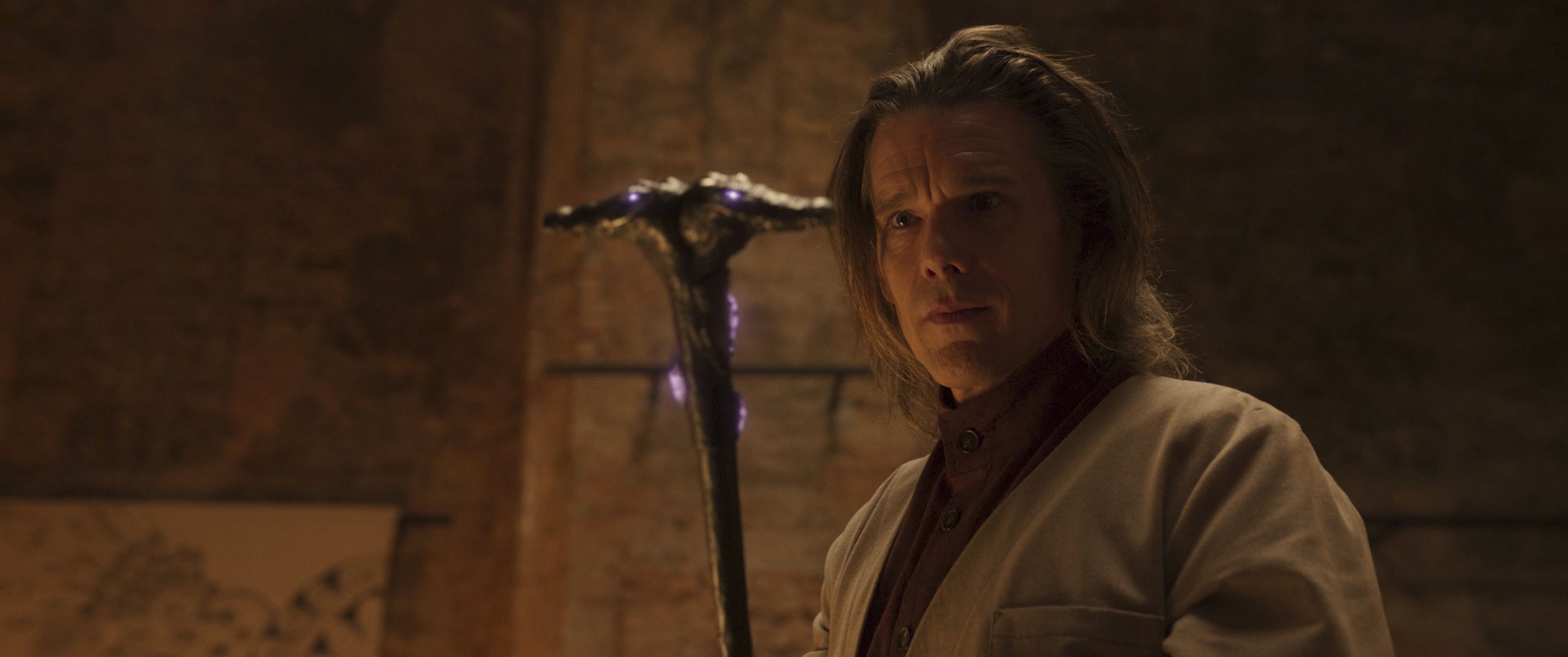
isn’t Oscar Isaac’s first venture into mega franchises: he played swashbuckling pilot Poe Dameron in the recent trilogy and even dipped a toe into Marvel as the titular supervillain in X-Men:Apocalypse – an unhappy experience spent buried under prosthetics.
Small wonder, then, that he had concerns about stepping back into another, especially with Moon Knight rumoured to be joining the wider Marvel Cinematic Universe. ‘I had major reservations,’ he admits, talking in a hotel on the morning after the premiere.
‘I see the possibilities, but I’m also terrified that I’m going to be standing in Budapest with a cape on, being like: what the f**k am I doing? That was the fear, but then when I finally did get the cape, I knew exactly what to do. You can feel silly in those costumes, but it felt really powerful to walk on set, really cool.’
The hooded, masked AND caped Moon Knight is cool, for sure. But for Isaac, exuding a certain effortless cool himself, of greater interest was the challenge of working through several intimate character studies in a big, brash genre.
Moon Knight’s alter egos include mild-mannered English museum shopworker Steven Grant and violent Jewish-American mercenary Marc Spector, both suffering from dissociative identity disorder (DID), sharing the same body and working (unknowingly, in Steven’s case) on behalf of Khonshu, the ancient Egyptian moon god.
‘This isn’t a definitive portrait of DID,’ says Isaac, ‘but it is using this genre and iconography to represent the internal struggle of living with it and trying to heal from it.’

Moon Knight is also a lot of fun. One memorable sequence has Steven apologetically discovering his own lethal capabilities while fending off assassins in an ice cream van careering down hairpin Alpine roads, Wham blaring from the speakers.
But perhaps the biggest stunt is Isaac’s extraordinary English accent, pitched somewhere between Dick van Dyke and Oliver Twist. ‘I just pulled it out of my ass. I thought: what’s the most offensive thing I could do? And just did that.’ He grins.
‘Steven’s a Jewish-American guy who thinks he’s English. There are reasons behind it…’
The villain is Ethan Hawke’s Arthur Harrow, a cult leader affiliated to a rival ancient deity, but Steven/Marc are not alone in their struggle. Joining them is Layla El-Faouly (May Calamawy), an archaeologist and adventurer whose name Steven discovers on Marc’s burner phone.
Ethan Hawke on playing the bad guy

‘The exciting thing is that it’s almost always the villain who is mentally ill. If it’s the hero, then the antagonist needs to be the opposite of that: calm, consistent, even.
‘How could that person be a madman? I started thinking of religious zealots, because a lot of them come off really calm and think they know exactly what’s right for your life.
‘Oscar lives a few blocks away from me in Brooklyn, and it’s true, he did approach me about this in a coffee shop, but it wasn’t the coffee that made me do the series!
‘The passion, the intensity with which he was talking about it: that’s a good omen. When actors are really excited and scared about something, good things come from that.
‘It felt like we could do it together, and we’d be a little safer. We could watch each other’s back and say, “Hey, is this good?” The world wants to see these things and sometimes they’re amazing, but the problem is that everyone’s going to see it, whether it’s good or not.
‘We all got into this show for the same reasons, so we have no one to blame, but each other…’
‘She’s the full gamut of a woman,’ says Calamawy, the Egyptian-Palestinian star of Ramy. ‘She starts off really confused, having known Marc in the past and then meeting Steven and trying not to let her emotions get in the way. Then we see her getting more confident, trusting her own intuition and taking charge.
‘I keep saying: how is it a universe if it’s not diverse? I’m so excited they’re bringing an Arab woman into the MCU. I wish I’d had a character to watch like this when I was younger.’
When Isaac was fully immersed in his roles, Calamawy could tell ‘instantly’ which persona she was playing opposite. ‘I would have a visceral reaction. Whenever he was Marc, I found myself much more guarded, and when he was Steven, I felt so much more nurturing. It was an instinctive response, really a testament to his work.’
For Isaac, these transformations made Moon Knight his most challenging project to date.
‘Over an eight-month shoot, I really wasn’t prepared for the technical aspects of having to interact with myself: show up, figure out how I was going to respond, rehearse it and make decisions as both characters, decide which one I wanted to do first, then have the dialogue fed into my ear and go for it.
‘And these were intense scenes – but the results were worth it.’
Moon Knight is available on Plus.
Do you have a story to share?
Get in touch by emailing [email protected].




















